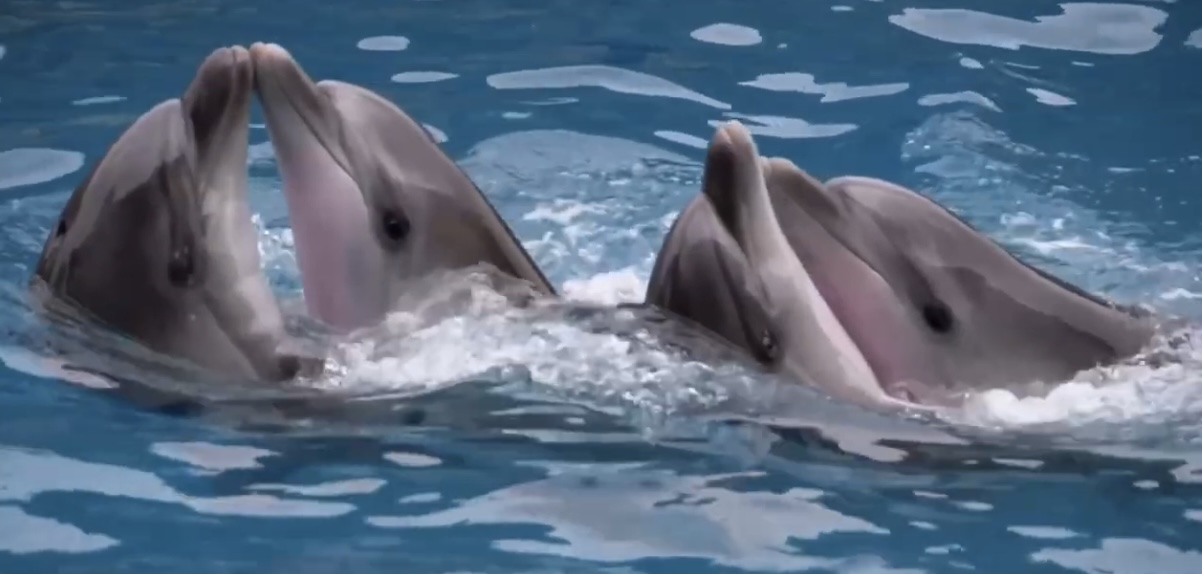In the midst of the Mediterranean Sea, a mother dolphin was spotted carrying her deceased calf on her back.
The heartbreaking and uncommon moment was filmed by environmental content creator Margarita Samsonova, age 29.
Margarita, who resides in Lisbon, believes that this is the first time this behavior has ever been observed in Europe, and that it provides a remarkable glimpse into how animals experience sadness.

They had been out on the water for almost five hours and were returning to port when they spotted the dolphin pod.
Margarita stated, ‘I had really conflicting feelings.’ ‘I immediately started crying since it was so horrible and agonizing to watch’
‘At the same time, it was quite exciting because it was something new, something that had never been recorded before.’

Margarita studied Zoology at Oxford Brookes University and took the photograph while accompanying a research team.
The experts from AIMM, a Portuguese marine research society, led the group on an expedition off the coast of Albufeira.
Margarita added that they were initially attracted to the pod of roughly 25 dolphins because of their peculiar behavior.
She recalled, ‘The dolphins were behaving really erratically; they were jumping higher than usual and making very weird sounds.’
‘Then we observed a mother with a dead calf; it was evident that she was struggling to pull the kid to the surface.’

It seems like both the mother and the other dolphins were experiencing a period of mourning.
Margarita noted that the precise significance of this behavior is uncertain.
She stated, however, that the director of the research team hypothesized that it demonstrates a genuine display of sadness from the mother.
This could be a knee-jerk reaction and animal humanization on the side of the scientist. Occam’s Razor would suggest that the mother did not understand the calf was dead, but that she had to relocate it since the pod was moving.
This behavior has previously been recorded in Atlantic Ocean dolphins. Three times, Dr. Joan Gonzalvo of the Ionian Project, which is supported by the Tethys Research Institute, has observed bottlenose dolphins attending to a dead calf.

‘Therefore, my hypothesis is that when the mothers carried their calves for several days, it was because the calves were newborn, thus the death was sudden and unexpected,’ Dr. Gonzalvo told the BBC. The mothers required additional time to grieve.
‘However, when the pod had to care for an animal that had been ailing for some time, it was in some ways a comfort when it died and they could move on the same day as opposed to lugging its remains for a week.’
